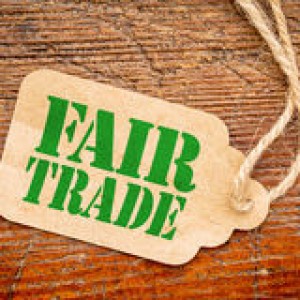News
US Fair Trade imports rise 26%
24 Aug 2015Imports of Fair Trade Certified produce into the USA rose 26% in 2014, as reported by Fair Trade USA. This, it said, marks the biggest year yet for the organisation’s Produce and Floral category, helping farm workers and small producers earn over $5.5 million in additional Community Development Premiums ($18 million since the program launched […]

 Imports of Fair Trade Certified produce into the USA rose 26% in 2014, as reported by Fair Trade USA. This, it said, marks the biggest year yet for the organisation’s Produce and Floral category, helping farm workers and small producers earn over $5.5 million in additional Community Development Premiums ($18 million since the program launched in 2004). This continued growth reflects a rising demand—from both shoppers and retailers—for products that support better livelihoods for the people who grow our food, believes the organisation.
Imports of Fair Trade Certified produce into the USA rose 26% in 2014, as reported by Fair Trade USA. This, it said, marks the biggest year yet for the organisation’s Produce and Floral category, helping farm workers and small producers earn over $5.5 million in additional Community Development Premiums ($18 million since the program launched in 2004). This continued growth reflects a rising demand—from both shoppers and retailers—for products that support better livelihoods for the people who grow our food, believes the organisation.
To enable this momentum, Fair Trade USA increased its Certified offerings to over 25 different fruits and vegetables, ten of which were added since 2012. These include: strawberries, asparagus, melons, eggplant, peaches, tomatoes, peas, green beans, squash and mini-carrots. Fourteen new producer organisations were also certified this year, bringing the total number to 64 growers from nine different countries.
Fair Trade Certified produce from Mexico – a region where issues such as forced labour, poor housing and pay withholding have been in the limelight, according to Fair Trade USA – was a key driver of growth in 2014. Over 63 million pounds of produce from Mexico were imported into the U.S. in 2014, delivering $2.4 million in Premiums to producers, a 344% increase over 2012. These funds are used directly by workers and small producers to invest in areas like healthcare, education, housing and transportation.
“Fair Trade funds are helping workers on this farm,” said Gerardo Ramirez, 45, who has worked at a Fair Trade farm in Sonora, Mexico for 19 years. “Thanks to our Fair Trade Premiums, many of us have access to dental care for the first time.”
These producer benefits also have a direct impact on business, which is why retailers are increasingly looking to Fair Trade to strengthen their supply chains, the organisation said. Many produce farms face labour shortages during harvest periods, for example, leading to produce rotting on the vine. At Fair Trade Certified farms, documentation shows that many workers return each year to access additional benefits. This steady labour pool in turn promotes more secure supply chains and higher quality produce.
Today, Whole Foods Market purchases 75% of all Fair Trade Certified produce imported into the United States.
